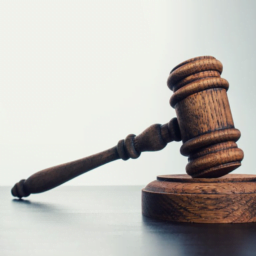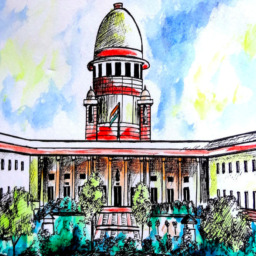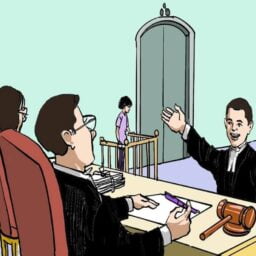INTRODUCTION
“Mental disability” is described as the difficulties in accessing information at the pace where an ordinary human being supposed to learn them. Through the development of technology, mental health disorders are becoming more and more accepted nowadays. Formerly mental impairments were viewed as ‘insanity’ but is now being addressed as ‘psychiatric condition’.[1] The world recognises the dilemma of such individuals and so to offer assistance to help, specific guardianship guidelines have been established. In this article, the author shall review the guardianship legislation notably involving suffering from mental illness persons in India and overseas. In India, there is distinct legislation known as The National Trust Act, 1999 that makes provisions for the care of mentally challenged individuals, and other nations.[2] For example – the United States, China, etc. have comparable laws.
LEGAL GUARDIANSHIP
A parent/guardian is a person appointed by the court to look after a minor as well as his possessions and property till the minor attains the age of majority. According to the Indian Majority Act, 1875 the legal age for a juvenile with a legally designated guardian is 21 years. The court will appoint a guardian not just for a youngster but also for the individuals who are just not capable of taking care of themself, including mentally or physically challenged individuals.
The Indian Contract Act, 1872 under section 11, sets forth the requirements for a party’s ability to enter into an agreement. Minors and individuals of unsoundness of mind are deemed incapable to engage in a contract under this section. As a result, the concept of legal guardianship is present, which allows that kind of person to enter into a contract while also protecting their best interests. The law allows people with this disorder, autism, and other abnormalities to appoint a guardian who will make all of their legal decisions for them. This guardianship does not have to be absolute; for example, if a psychologically disabled person can start exercising some grip over oneself, the law will appoint a provisional guardian.
CONCEPT OF GUARDIANSHIP
Section 14 of the National Trust Act,1999[3] specifies the requirements for custody of suffering from mental illness person. A local and state-level committee is entitled to designate guardianship for mentally incapacitated people under this section. A formal guardianship application must be submitted with the district collector, who will subsequently designate the parent or guardian provided the request is satisfied. Legal custody and visitation applications may be submitted either locally with the local committee or online through the official site.
- Voluntary
A parent, family, or organisation may voluntarily petition for custody with a regional committee formed together under statute according to Section 14 of the National Trust Act,1999. This clause requires the guardian must look after both the mentally impaired individual and his possessions. Any individual linked to the handicapped person by blood, marriage, as well as adoption, shall be considered trivial compared with Chapter VI of the National Trust Act, 1999.
- Involuntary
Involuntary guardianship is covered under the Rights of Persons with Disabilities Act of 2016[4]. If the regional collector believes that a mentally impaired person is unable to look for oneself, he may designate a parent or guardian for such person within U/S 13 of the act. The guardian designated under this provision may be granted plenary guardianship, which gives the guardian complete control over the mentally ill person’s choices, or restricted guardianship, which gives both the guardians and the mental patient joint agreement overall activities.
The National Trust Act, 1999 established guardianship. Even though previously mentioned, the National Trust Act, or even more specifically, the ‘National Trust for such Welfare of Individuals with Autism spectrum disorder, Intellectual Disabilities, Neurological Dysfunction, and Multiple Disorders,’ responsible for the custody of persons with down’s syndrome, autism, as well as other mental disabilities. Whenever Section 14 of the act[5], the application has been submitted, a local committee will make a decision. Let’s attempt to figure out how this regional group is and who makes up its membership.
ROLES AND RESPONSIBILITIES OF A GUARDIAN
Section 16 of the National Trusts Act, 1999 outlines the responsibilities of a guardian. Within six months of receiving guardianship under the National Trust Act, the guardian must notify the appropriate authorities of all movable and immovable properties, debt payments, assets, and obligations of the mentally unstable individual for he had been appointed. He also has a three-year obligation to report to the law enforcement agencies all of that child’s money transfers before each financial year.
THE CURRENT LEGAL SYSTEM
A child’s natural guardianship is the individual who is legally assumed to have a rightful claim of guardianship and over a kid and, as a result, is believed to make the final choices about the child’s wellbeing. Unless a court takes away the natural guardian’s legal right to function as a minor’s guardian under Guardian and Ward’s Act [“GWA”], or unless a decedent guardian has indeed been appointed by will, the natural guardians do have the legal freedom to intervene as a minor’s guardian. India has also ratified the United Convention on the Rights of the Child [“CRC”][6] and is responsible for ensuring that the rights guaranteed by the Conventions are upheld throughout the nation. This Act applies to all underage children of any caste or faith, yet the court will consider the minor’s personal law when appointing or designating a person as the minor’s guardian. If the minor’s personal law does not contradict with just about any element of that same GWA, the minor’s personal law shall govern.[7] The GWA includes most of the legislation on guardianship, but it is augmented either by Hindu Minority and Guardianship Act, 1956 [“HMGA”], which exclusively applies to Hindus, i.e., the HMGA’s provisions are in addition to the GWA’s. The father is the guardian of the child of a legitimate child’s person and property there under Hindu Minority and Guardianship Act, 1956; following him, then guardianship passes to the mother.[8]
SEGMENTED JURISDICTION
Adults who are mentally ill are treated as minors in civil law nations. The Portuguese Civil Code specifically specifies that a person under ‘interdiço’ is ‘identical to a minor,’ and so that, as a result, the regulations regulating guardianship of minors also extend to adults, only with required exceptions. The paternalistic approach is the name for this method. The Italian Civil Law and Estonian legislation both include identical provisions. Apart from supporting incompetent individuals in legal labour, the rule also applies to anyone who needs provisional patrimonial protection under French law.
Sweden has two types of protection: the ‘godman’ and the ‘forvalarskap.’ In Japan, historically, it was the family’s and, to be much more precise, the household’s obligation to care for the crippled person. However, in the 2000s, the whole structure was overhauled. A ‘hojonin,’ or helper, is assigned to a mentally challenged person who ‘assists’ them. “Guardianship,” “curatorship,” and “assistance” are the three categories that make up the legal guardianship system. Depending on the person’s mental ability, a suitable system may be selected. The guardians are now in charge of not just legal matters but also the day-to-day caring of the mentally disturbed person. In Germany, there is a mechanism for the designation of a ‘Betreuer,’ sometimes known as a caretaker, who is appointed by the court and is responsible for carrying out specific directives. The appointment of a caretaker is seen as the last option. The caregiver, in this case, might be a member of the family, a representative of an organisation, or a governmental agency. A ‘Betreuung’ or ‘caretaker’ is also mentioned in the German Civil Code. Several nations allow for the appointment of a guardian, with differences in the level of liberty granted to the caregiver and mentally retarded, as well as the terminology employed.
CONCLUSION
It is our obligation to care for our ‘specially-abled individuals.’ The government has assured that they have been properly cared for by enacting guardianship legislation. Judiciary has assured that each mentally impaired person lives with respect via the notions of voluntary and involuntary guardianship. The international world isn’t far behind, therefore we must all work together to ensure that “We Rise by Lifting Others and providing support.”
Until children have their own legal representation in marriage conflicts, counsellors appointed in Family Courts underneath the Family Courts Act should be taught to evaluate what is in the child’s best interests. Furthermore, one must hear the views of people who have been marginalised by previous practises, who have been denied access to information, who have been denied participation, and who have been marginalised by policies (because they do not vote). Whether the discussion is about the child’s “needs,” “welfare,” or “best interests,” courts frequently take a paternalistic approach to them. Adults are the ones who interpret this. In the courts, children’s voices must be heard and understood.
Author(s) Name: Akansha Arora (Amity University, Noida)
[1] ‘What is guardianship?’, (2021) The national trust, available at: <https:// www.thenationaltrust.gov.in/content/innerpage/guardianship.php> (last visited 17 November 2021).
[2] ‘Guardianship’, Vikaspedia, available at: <https://vikaspedia.in/education/parents-corner/guidelines-for-parents-of-children-with-disabilities/guardianship> (last visited 1 November 2021).
[3] The National Trust Act 1999.
[4] The Right of persons with disabilities act 2016.
[5] (n 3).
[6] (n 3).
[7] Siddigunnisa Bibi v. Nizamuddin, A.I.R. 1932.
[8] Geeta Hariharan v. Reserve Bank of India, (1999).
















